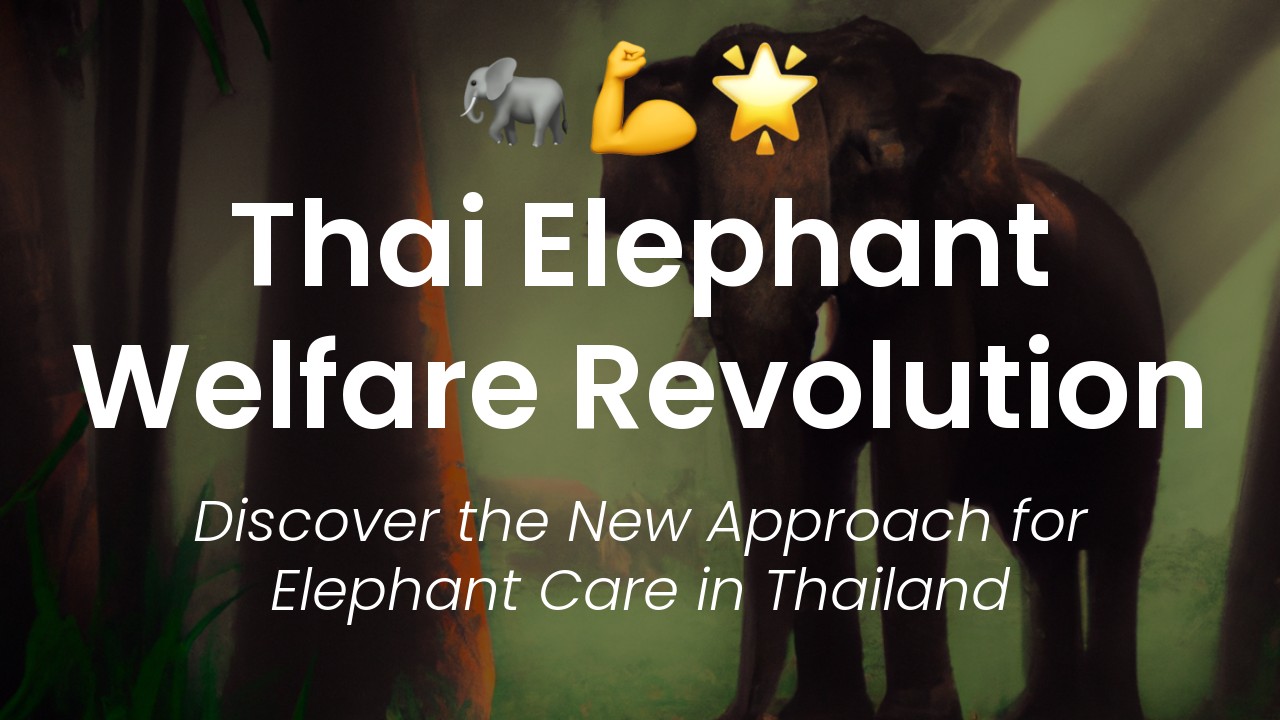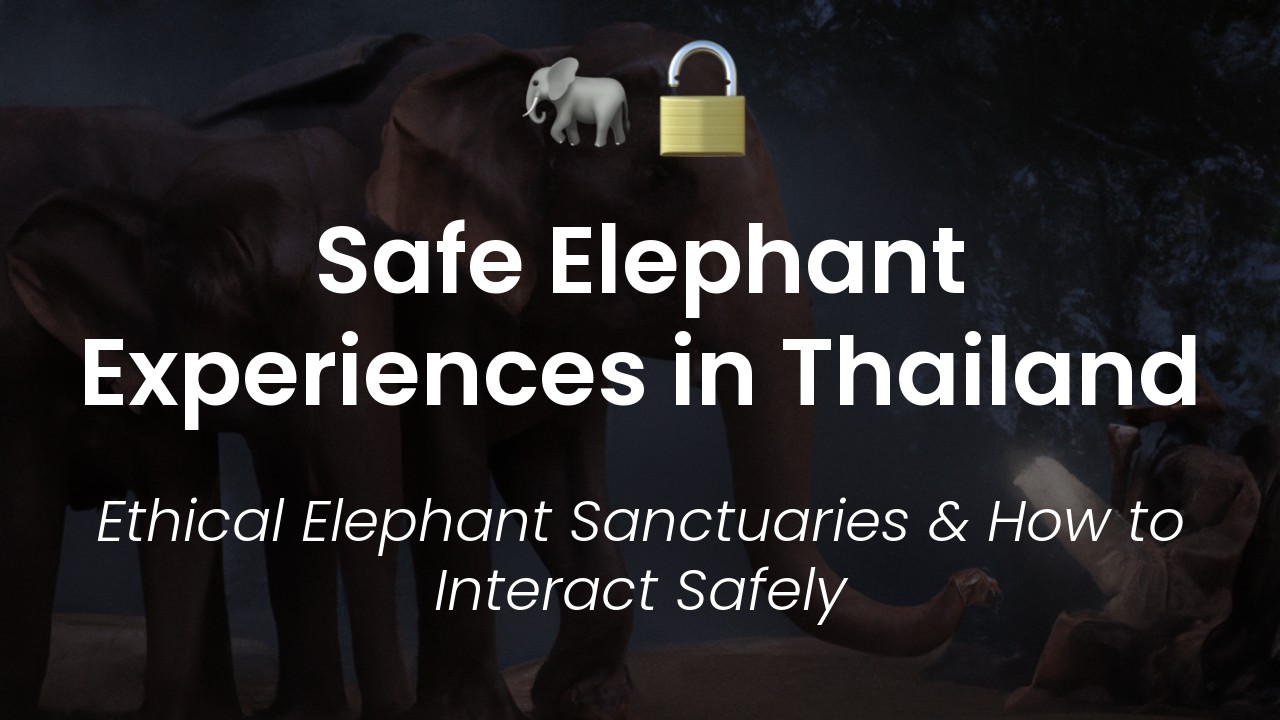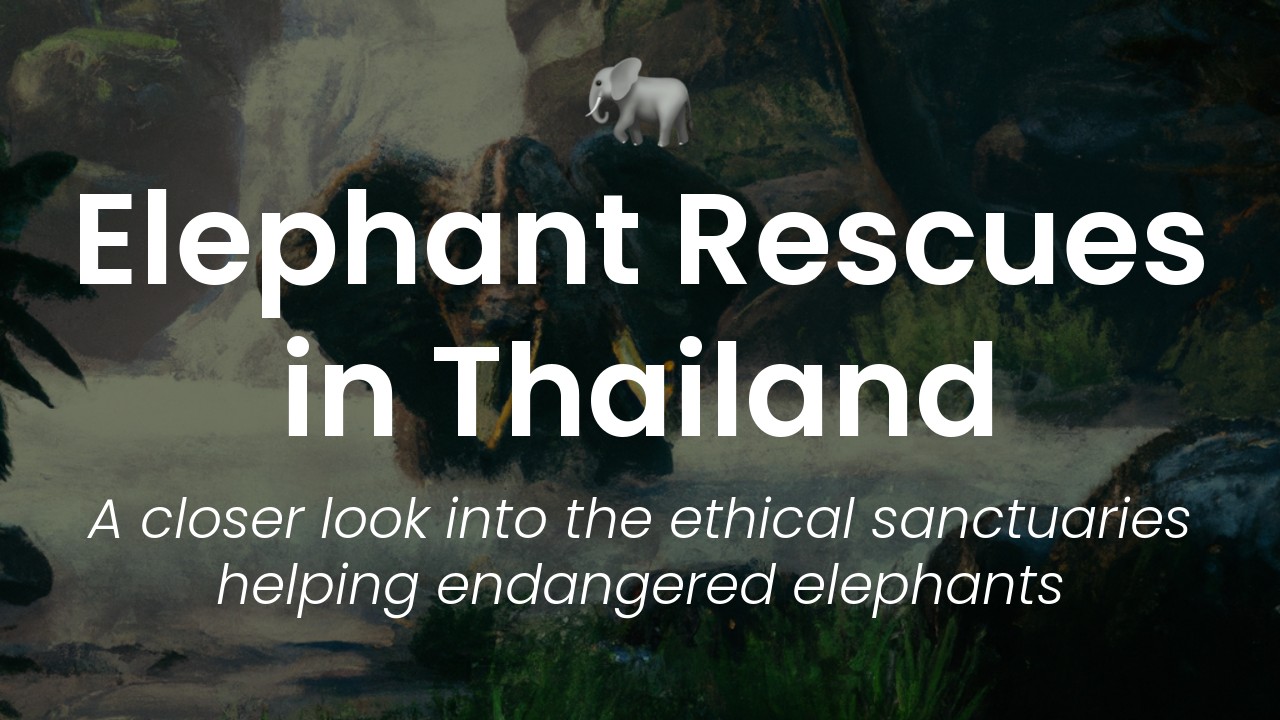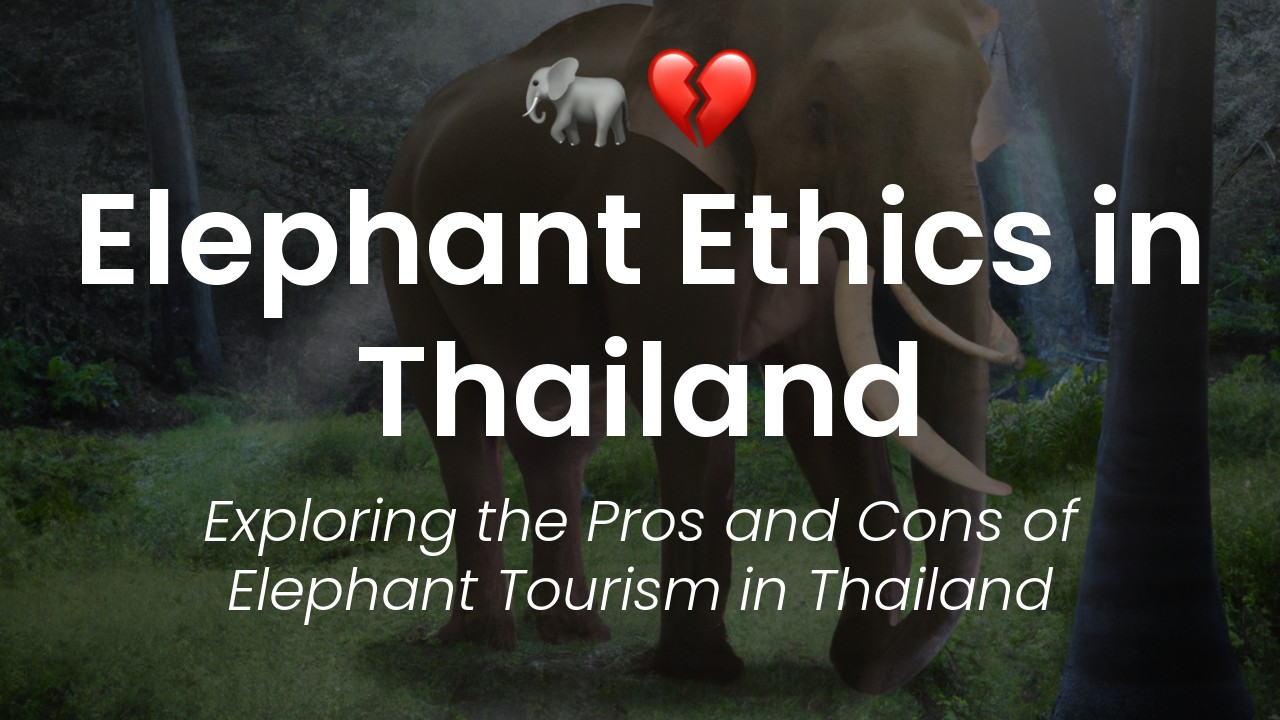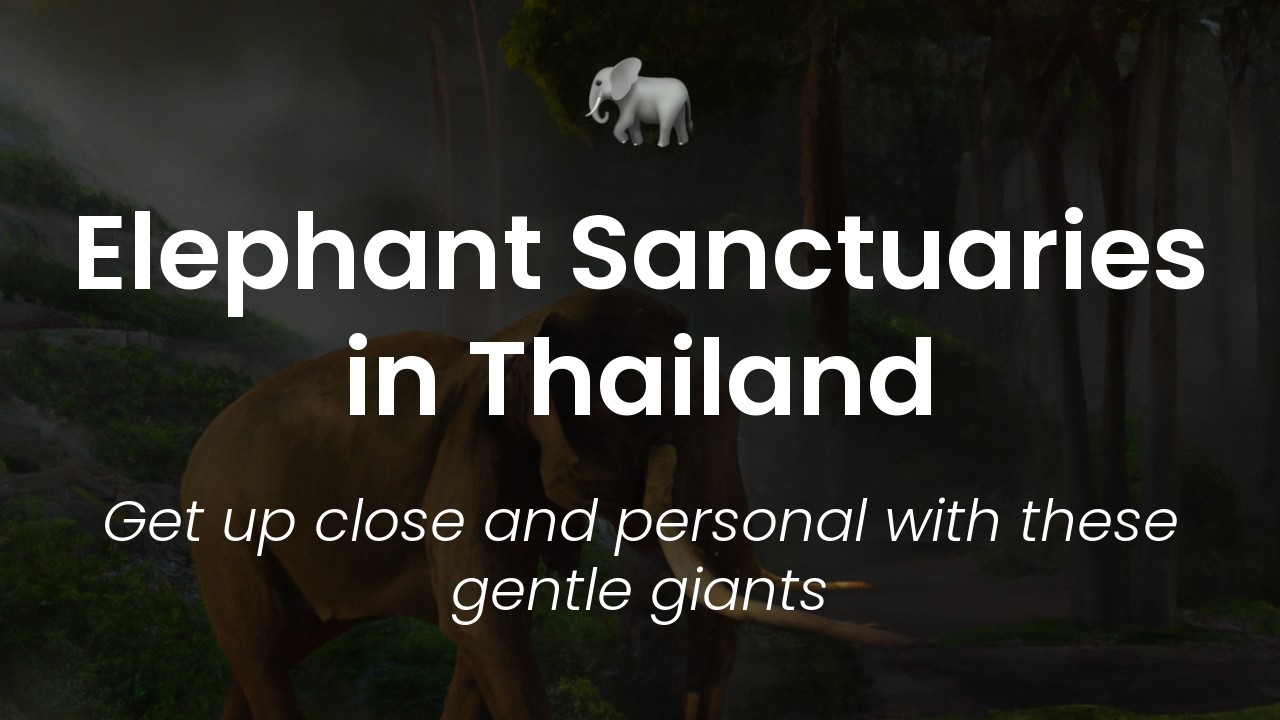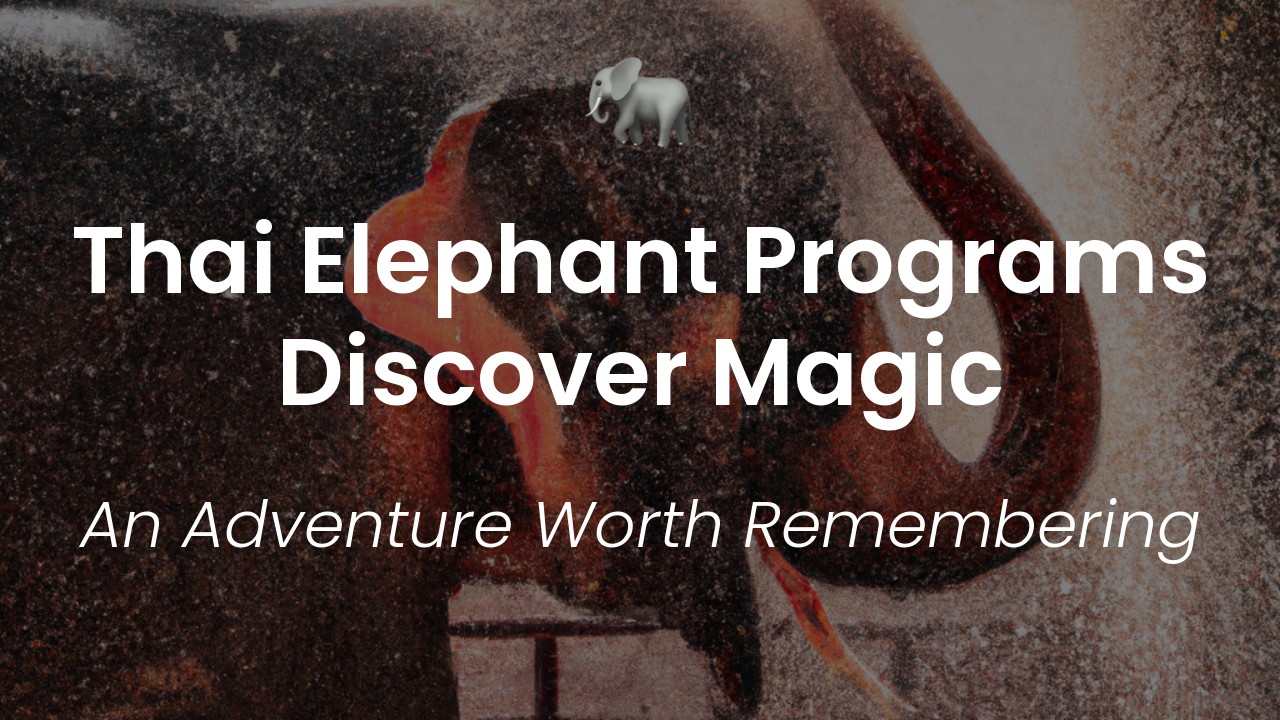As a Thai woman and a passionate advocate for my country's culture, one of the things that breaks my heart is seeing the mistreatment of elephants in Thailand. These majestic creatures have played an essential role in Thai cultural identity for centuries, but sadly, their status as cultural icons hasn't always translated into proper care and respect from their handlers. Unfortunately, elephants have long been used as tools for labor, transportation, and entertainment in Thailand, and many tourists come to my country just to ride the elephants, which only perpetuates the cycle of mistreatment.
But there is hope. Over the past few years, Thailand has seen a renewed focus on elephant welfare programs that aim to provide the utmost care and respect for these incredible creatures. I'm excited to share some of the programs that have made me hopeful for the future of elephant care in Thailand. These programs are revolutionizing the way we think about elephant welfare and are a testament to the Thai people's commitment to caring for these magnificent animals.
In this blog post, I will share some of the most incredible elephant welfare programs in Thailand that I believe tourists should know about. These programs are not only providing care to the elephants, but they are also working to educate and raise awareness about the importance of elephant welfare. As someone who has always been passionate about Thai culture and loves sharing it with others, I'm proud to spread the word about these extraordinary efforts. Join me in learning about these programs and spread the word to revolutionize elephant welfare in Thailand!
Elephant Nature Parks
Elephant Nature Park is a well-known elephant rescue and rehabilitation program located in Northern Thailand. Founded by Sangduen "Lek" Chailert in the 1990s, the park is home to over 80 rescued elephants, many of whom were abused in the logging or tourism industries.
The park offers a unique experience for visitors who can observe the elephants in their natural habitat, feed them, and even bathe them in the neighboring river. Visitors can also stay overnight in one of the park's eco-friendly lodges or volunteer for a longer duration and participate in the daily care of the elephants.
What sets Elephant Nature Park apart from other elephant tourism experiences in Thailand is their commitment to ethical elephant interactions. The park does not offer elephant rides or shows, which are often associated with cruel training practices like the use of bullhooks or chains. Instead, the elephants are free to roam and behave naturally, giving visitors the opportunity to observe and learn about these incredible creatures without infringing on their well-being.
Elephant Rescue and Rehabilitation Program
Elephant care in Thailand has not always been ethical. In the past, elephants were used for transportation, heavy labor, logging, and tourism, all of which often involved violence, cruelty, and painful training techniques like phajaan or "the crush."
However, the last decade has seen new initiatives to rescue and rehabilitate captive elephants in Thailand, focusing on providing a healthier and more natural existence for these incredible creatures. These efforts are changing the way people interact with elephants in Thailand and revolutionizing elephant welfare.
These new programs come in a variety of forms, including sanctuary programs and individual elephant rescues. Many sanctuaries, like the aforementioned Elephant Nature Park, offer tourists and visitors a chance to interact safely with elephants in a stress-free environment. Other rescues focus solely on the rehabilitation of individual elephants that have been rescued from abusive situations.
Ethical Elephant Interactions
In the past, elephant tourism in Thailand involved forced and cruel activities like elephant trekking, circus-like performances, and obedience training. This has led to poor elephant welfare and exploitation, with elephants subjected to chaining, harsh treatment, and a lack of proper nutrition and care.
Thankfully, the public has become more aware of the negative impact of these practices on elephant welfare. As a result, more people are interested in ethical elephant interactions and learning about the life and behavior of these gentle giants without infringing on their freedom.
Visitors to Thailand can now partake in ethical elephant tourism experiences that promote elephant welfare, environmental conservation, and community empowerment. They can participate in elephant-friendly ecotourism where they can observe and interact with elephants in their natural habitats without causing harm to these majestic animals.
Elephant Sanctuaries
An elephant sanctuary is a facility designed to provide a haven for elephants after they have been rescued from poor living conditions, such as illegal logging, poaching, or captivity within the tourism industry. These sanctuaries serve as a place of refuge where elephants can live safely and enjoyably.
At sanctuaries, elephants no longer have to perform, trekking, or any other activities that compromise their welfare. Visitors are encouraged to observe and learn about the lives of the elephants, their natural behaviors and diets, and the challenges facing their preservation.
Sustainable Tourism: Supporting Ethical Elephant Welfare
Sustainable tourism is essential for promoting ethical elephant interaction and conservation. It helps support local economies and communities, preserves ecosystems, and educates visitors about ethical wildlife interactions.
One way to ensure sustainable tourism is to seek out eco-friendly travel options that are committed to responsible and nature-based tourism. For example, visitors can support parks, sanctuaries, and tour operators who prioritize animal welfare, conservation, and community development.
Benefits to Rescued Elephants and Communities
Elephant rescue, rehabilitation, and sanctuary programs not only benefit the elephants but also offer opportunities for local communities to generate income and employment. Many organizations partner with local communities to promote conservation, education, and sustainable tourism.
For example, organizations like Save Elephant Foundation provide education and social programs to the local communities around their sanctuaries, promoting ethical tourism, conservation, and community empowerment. These programs not only benefit the elephants but also offer a way for local communities to benefit economically while preserving their environment.

